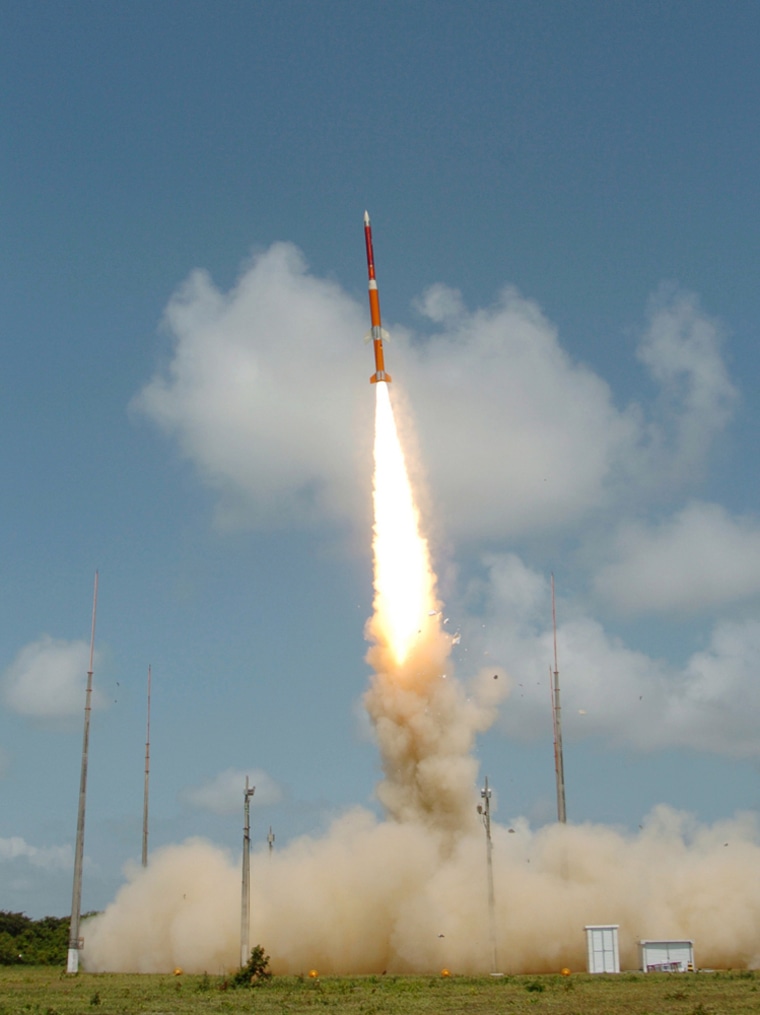Brazil launched a sounding rocket carrying scientific experiments on Thursday in an effort to revive a space program that was set back by a deadly accident in 2003.
Brazil's main objective is to develop and then sell satellite-launching rockets, as well as to promote its Alcantara launch site near the northeastern city of Sao Luis.
The VSB-30 sounding rocket was airborne for only 20 minutes and a module carrying experiments was to be salvaged from the Atlantic Ocean, the Brazilian Space Agency said.
Officials view the launch as a key step in recovering Brazil's space program after a satellite-launching rocket exploded at the same site in 2003 and killed 21 people, including several scientists.
The VSB-30 was only the second rocket of its kind to be launched in Alcantara since then.
Brazil's rocket technology is decades behind that of other countries like the United States, Russia, and China. But authorities say they would save money, gain technology and complement their satellite-building technology.
The experiments were based on minimal gravity in space and developed by Brazilian and German universities.
Critics say military control and a small budget are to blame for little progress in the space program of Latin America's largest country.
"We know how to make satellites but not the rockets to transport them. We would have made more progress if the rocket technology and construction had been in civilian hands," said Jose Leonardo Ferreira, professor of space sciences at the University of Brasilia.
Brazil has yet to test liquid propulsion before using it in a satellite-launching rocket planned to be completed in 2010.
The Air Force, which controls air traffic, is also blamed in part for repeated disruption of air travel in Brazil over the past year. An airliner crashed in Sao Paulo on Tuesday, killing as many as 200 people in the second major air accident in 10 months.
The launch of the VSB-30 rocket, part of which was designed together with the German space agency, had been delayed seven times since last week due to bad weather.
